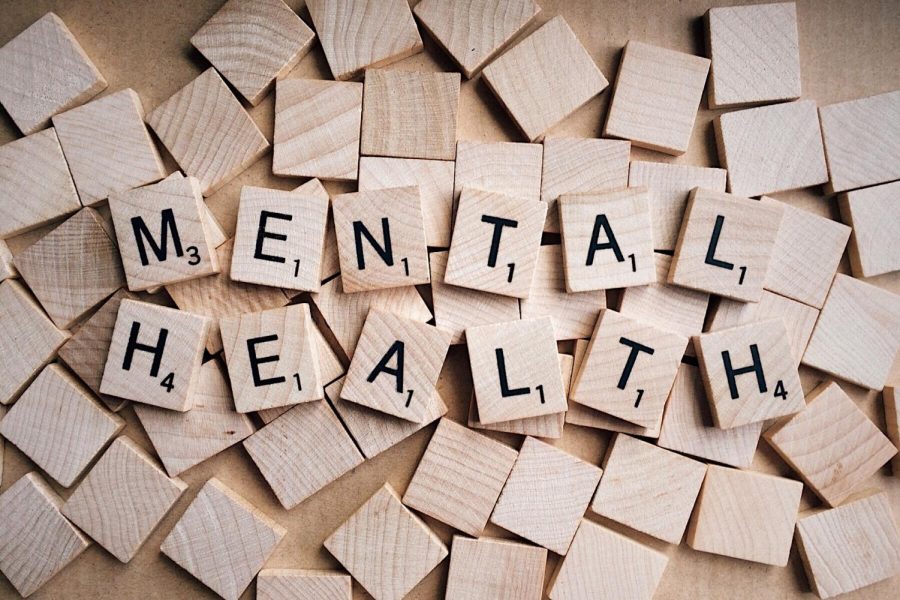Soter: Utah’s Rural Communities Need the Mental Health Workers HB 2431 Would Bring
September 16, 2020
Patients at the University of Utah Neuropsychiatric Institute are split into four age groups. When I was 15, I was admitted to the institute and placed in the 12-14 group because my appropriate destination was filled to capacity. Even still, I was the lucky one. I didn’t have to wait weeks, even months in some cases, to be admitted due to my community’s less than adequate mental healthcare system, and who knows where I’d be if I had?
My experience and so many others’ are evidence that Utah is in the midst of a mental health crisis. The system is overwhelmed, and underserved populations are taking the brunt of the impact. In this isolated time, mental health has become a challenge for many people and access to care is extremely limited. HR 2431, a new bill co-sponsored by Representative Ben McAdams, is the way to provide it.
HR 2431 would offer student loan forgiveness to graduates in the mental healthcare field if they dedicate themselves to working in rural or underserved communities in Utah and elsewhere for at least 6 years. The bill is sponsored by Representative John Katko of New York’s 24th district and is co-sponsored by McAdams and 33 other members of Congress. This widespread support of the bill clearly demonstrates that while the problem is acute here in Utah, mental healthcare workers are in short supply all over the country and will continue to be in great demand due to the psychological effects of the pandemic.
When McAdams signed onto the bill, he partnered with the American Foundation for Suicide Prevention and Utah Partners for Health, a program that provides people in poverty access to mental health services, to ensure the bill would meet a real need. Barbara Cryer, a behavioral health specialist at Utah Partners for Health, spoke at McAdams’ signing and remarked that she is a living example of the benefits the new legislation could have. She pointed out that students who graduate with degrees in social work, like herself, end up with about $30,000 in debt. That debt can be a huge deterrent for students who are interested in mental healthcare and social work to actually pursue those careers — especially since the average yearly income of a social worker in Utah is around $45,000. That income is simply not sufficient for life in a major metropolis today. However, this is an ideal motivator for the public to positively respond to HR 2431 — big cities aren’t as desperate for mental health professionals as rural areas.
The bill will benefit mental health graduates in that they will be able to do the work they’re passionate about while also making a viable income, or at least not having to siphon it off to pay their student loans. And the public will benefit because they will have more access to mental health resources. Ultimately, this could lower Utah’s rising rates of suicide and mental illness.
As of 2019, Utah only had 335.5 mental health providers for every 100,000 people. This number is above the national average, but given that Utah has the 6th highest suicide rate in the nation, it should be even higher — the state with the 6th highest provider to person ratio, Rhode Island, has 409.5 mental health workers per 100,000 people. Add in the traumatic effects of COVID-19 and it’s obvious the state is dealing with a crisis. The pandemic is affecting our mental health substantially. Humans are social beings — we need to interact with each other to thrive, and COVID-19 has made that impossible for many. In fact, according to an August report by the CDC, increased mental health resources are an essential part of responding to COVID-19.
Furthermore, underserved communities in Utah and across the nation are seeing a rise in mental illness for a plethora of reasons. For one thing, the unemployment crisis has left many feeling hopeless and insignificant. Even worse, the mental health care system is designed to exclude those in poverty because proficient care is so costly and requires insurance that often comes through an employer. And in Utah’s rural communities, mental health workers were scarce even pre-pandemic because it is so difficult to find trained mental health workers who want to live there. According to a UMEC report, there were only 141 full-time equivalent providers to every 100,000 people in rural areas in 2015. In urban areas, there are 171. This discrepancy is proof positive that rural communities need more mental health resources.
Our communities need additional psychiatrists, therapists and social workers that would come with this bill, especially in this turbulent time. Congress must pass HB 2431 so we can all be the lucky ones — so we can all get the help we deserve.









Gregory Soter • Sep 25, 2020 at 9:03 pm
Finally….someone is addressing this most serious subject both in Utah & across the country. What a well written article. Thank you Theadora
Mary Simos • Sep 25, 2020 at 8:58 pm
What a worthwhile and important subject. The Utah Legislature misses it every session !!!!!
Beautifully written.
Keep up The good work.